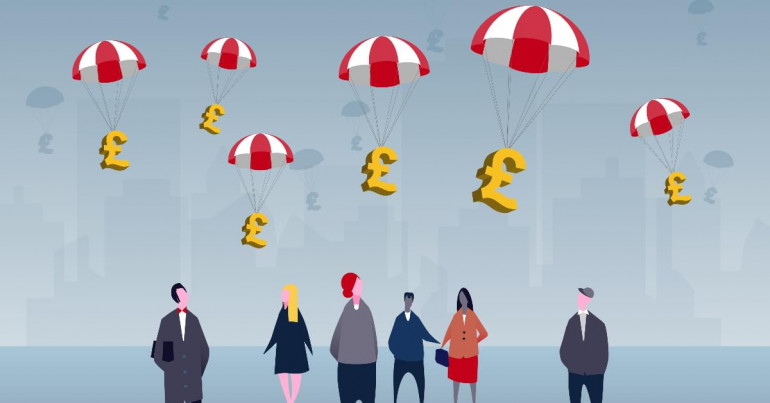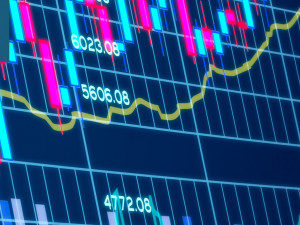
Bailey unable to avoid recession
Morning mid-market rates – The majors
17th June: Highlights
- Economy expected to see Q2 contraction as inflation soars
- Aggressive Fed led by an Inflation Hawk
- Lagarde admits to being in the dark
GBP – Inflation to hit 11%
Those with floating mortgages will see their repayments rise straight away while those on a fixed rate/fixed term will enjoy the luxury of a lower rate for a little longer.
Andrew Bailey, the Bank’s Governor, commented in his post decision press conference that inflation could reach 11% this year. That set off a fury in the press, which believes every word he says.
While the situation in the country is likely to get worse before it gets better, there was a little good news. The wholesale price of both petrol and diesel fell by two pence, although this hasn’t yet been reflected in the pump price.
No one is predicting the end of fuel price inflation, but it is the first move in the right direction for quite some time.
Public confidence in the Bank of England is at an all-time low. This is a normal reaction in a period when the Bank embarks on a course leading to a tightening of monetary policy.
Furthermore, making comments predicting a rise in inflation to eleven percent then hiking rates by just twenty-five basis points appears incongruous.
This drip-drip of small hikes is not going to provide any form of relief from inflation. As we have seen before, the Bank appears almost timid or apologetic about its change of policy when demonstrably aggressive is necessary.
The five hikes seen already in the current period have not had the effect that has been required and although the entire committee voted for a hike, the minutes are likely to show a degree of disagreement about the size of the increase.
Michael Saunders, for example, is sure to have wanted at least a fifty-point hike and may have even pressed for seventy-five. Saunders leaves his post soon and while in the past his hawkish views were considered to be inappropriate for the Bank’s position, he is now considered to have had the keenest foresight.
Following yesterday’s meeting, the pound rallied, but it is unclear whether this was in reaction to the rate hike or to a general weakness of the dollar.
It reached a high of 1.2406, closing at 1.2357.
Recommend our services and earn up to £75 per successful referral
USD – Powell reverses Bernanke’s advice
Now, having presided over the largest hike in interest rates most people can remember, doubts are creeping into the public’s consciousness.
Former Fed Chairman Ben Bernanke, whose personality towered over the FOMC and to a large extent the U.S. economy, believed that the art of creating monetary policy is 98 talk and 2% action.
Latterly, Powell hasn’t been shy in advertising his intentions towards inflation, but has effectively conceded in the eyes of investors that the price of that will be a recession created by a continual rise in interest rates.
Nit-pickers will still want to see a full two quarters of negative growth before they believe that the official standard has been reached but in reality, a recession no matter how shallow is likely.
Inflation is proving to be more pernicious than had been projected. It is interesting that the President of the ECB made a valid point this week which applies to both the Eurozone and U.S. economies, that no two crises are the same. Each one comes out of a global issue and their elements are impossible to predict.
As far as the FOMC is concerned, using traditional methods may not work in the medium term, but they will plough on.
No one is going to counsel Powell to look the other way, but no one can predict that the small increments of rising inflation seen recently are the prelude to a levelling off. Only time will tell, but it is possible that the top is close.
With financial markets reacting badly to the seventy-five-basis point increase in the Fed Funds rate, the dollar index was unable to make further progress. Yesterday, it fell to a low of 103.41, closing at 103.82.
EUR – Effort to calm bond market could backfire
Until she spoke of her fears that the rise in interest rates that is scheduled for next would have significant consequences for the bonds of the weaker economies, and called an emergency meeting of the Central Bank to discuss cheating tools to combat any potential issues, things had been reasonably under control.
Now, having opened Pandora’s box, Lagarde must face the consequences.
Those consequences won’t include postponing the hike since a twenty-five or even fifty basis point increase in short term rates hasn’t created the collapse of bond prices,
it is a long-standing and entirely justifiable concern about the health of several Eurozone economies that have been battered by the Pandemic, although they were hardly in the rudest of health before Coronavirus arrived.
The tool that the ECB came up with was hardly a major breakthrough in Central bank policy. It simply means that the proceeds of assets purchased under the PEPP scheme will be reinvested more judiciously, taking into account the necessity of continuing to support weaker economies.
This means that while the ECB is no longer officially supporting those weaker economies, they will, but not in the form of a safety net. It is unclear how the Bank will price bids, but it is expected that they will try to gradually raise the expected yield to reintroduce a measure of market priced value.
The Pandemic has left the Eurozone with significant vulnerabilities across almost the entire spectrum. It created a true picture of just how unified the Union is in particular around national borders, but the economic effect was simply magnified for all to see,
While a panacea for rising inflation will need to take in the views of does and hawks equally. Just because Germany has a phobia over inflation, it doesn’t mean that, for example, Italy cannot run its economy in a less disciplined manner.
The euro gained ground yesterday as the dollar weakened following its own rate hike. It rose to a high of 1.0601, eventually settling back to close at 1.0548.

About Alan Hill
Alan has been involved in the FX market for more than 25 years and brings a wealth of experience to his content. His knowledge has been gained while trading through some of the most volatile periods of recent history. His commentary relies on an understanding of past events and how they will affect future market performance.”



